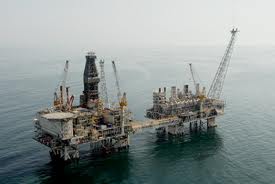Wikileaks svela incidente a piattaforma Bp in Azerbagian 18 mesi prima che nel Golfo
Il 17 settembre 2008, un incidente in una mega piattaforma di Bp in Azerbagian, “Central Azeri”, che serve il campo Azeri-Chirag-Guneshi nel mar Caspio, costrinse la compagnia a evacuare i 211 lavoratori. Lo scrivono il Guardian ed El Pais, media partner di Wikileaks, pubblicando dei cable dall’ambasciata Usa di Baku.
La fuga di gas, 18 mesi prima del disastro ambientale nel Golfo del Messico, secondo gli statunitensi – che citano un incontro con i vertici Bp nel gennaio 2009 -, fu causata “da un difetto nel rivestimento di cemento di uno dei pozzi”.
“Il 17 settembre – si legge nel dispaccio siglato dall’ambasciatore Usa a Baku, Anne E. Derse, del 26 settembre 2008 – l’acqua attorno alla piattaforma Central Azeri, una delle principali dell’Azerbagian, ha iniziato a ribollire, e i sistemi di allarme hanno rilevato alti livelli di gas. Poco dopo, in un pozzo si e’ verificato un ‘blowout’ (scoppio), espellendo acqua, fango e gas. La Bp ha disposto quindi l’evacuazione dei 211 lavoratori della piattaforma”.
Qualche mese dopo, siamo al 15 gennaio 2009, l’incaricato d’affari dell’ambasciata Usa, Don Lu, incontra i vertici di Bp in Azerbagian. “La compagnia si appresta a riavviare la produzione a Central Azeri, dopo aver chiuso alcuni ‘pozzi sospetti’ dai quali pensano si sia originata la fuga di gas a causa di un difetto nel cemento di rivestimento”, scrive il diplomatico affermando che “il fatto che la causa sia questa e’ una buona notizia, perche’ vuol dire che c’e’ da lavorare solo sui pozzi, fatto preferibile rispetto alla perdita della piattaforma”.
La mistura di cemento usata per sigillare un pozzo, giudicata “instabile”, e’ considerata la causa principale dell’incidente Bp nel Golfo del Messico, ad aprile 2010, nel quale hanno perso la vita 11 lavoratori e che ha originato la “Marea nera”, uno dei maggiori disastri ambientali della storia.
La piattaforma Central Azeri, assieme alle ‘sorelle’ West e East, e’ uno dei maggiori impianti mondiali: e’ situata nel Mar Caspio, a circa 100 km da Baku. La produzione e’ stata avviata nel 2005, e arriva al picco di 420.000 barili al giorno. I tre impianti arrivano nel complesso a produrre 950.000 bpd. I rapporti tra Azerbaigian e Bp sono stati molto tesi, si evince dalla lettura dei numerosi cable pubblicati dal Guardian e da El Pais. Nel 2007, il presidente azero Ilham Aliev accuso’ la Bp di “rubarci il petrolio”, per circa 10 miliardi di dollari, e di utilizzare un “lieve ricatto” (tagliando parte della fornitura di gas a Baku, ndr) per “assicurarsi i diritti di sfruttamento” nel Mar Caspio, che invece Aliev voleva estendere a Grecia e Italia. ——————————————————————————————————
IL CABLE NEL QUALE SI PARLA DI PROBLEMI AL CEMENTO CHE RIVESTIVA IL POZZO ——————————————————————————————————











